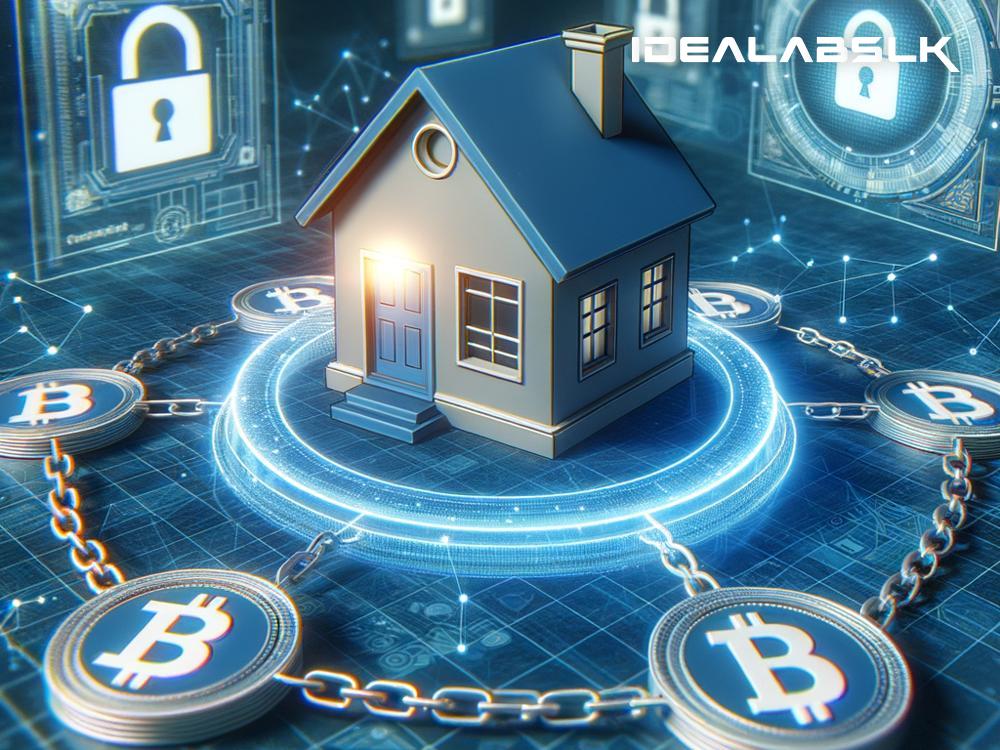The Future of Home Buying: How Blockchain is Transforming Property Sale Processes
In today’s digital age, technology is reshaping every aspect of our lives, and one area experiencing significant transformation is the way we buy and sell properties. Enter blockchain - a term that has garnered immense attention in various sectors, including finance, healthcare, and more recently, real estate. For many, blockchain's technical intricacies may seem complex, but its application in the property sale process simplifies transactions in several groundbreaking ways. Let's demystify how blockchain is revolutionizing the property sale processes and why it might soon become the standard in real estate transactions.
Understanding Blockchain: A Brief Overview
At its core, blockchain is a digital ledger that records transactions in a secure, transparent, and tamper-proof manner. Imagine it as a notebook where each page (block) records a series of transactions, and each page is securely linked to the previous one, forming a chain. This technology is the backbone of cryptocurrencies like Bitcoin but has applications far beyond that, including in the real estate industry.
Eliminating Middlemen
Traditionally, buying or selling a property involves several intermediaries — real estate agents, lawyers, banks, and government bodies. Each plays a role in ensuring the transaction is legal, secure, and properly recorded. However, these intermediaries also add complexity, time, and costs to the transaction process. Here's where blockchain steps in.
Blockchain has the potential to streamline the process by allowing buyers and sellers to interact directly. Smart contracts, which are self-executing contracts with the terms of the agreement directly written into code, automate and enforce the terms of the agreement without the need for intermediaries. This can significantly reduce the time and money spent on property transactions.
Increasing Transparency and Security
One of the most appealing features of blockchain is its transparency. Each transaction recorded on the blockchain is visible to all parties involved and cannot be altered or deleted. This increases trust among parties, as there is a reliable, immutable record of the entire transaction history of a property. It also significantly reduces the likelihood of fraud, a concern in the real estate industry where the authenticity of property titles can sometimes be in question.
Furthermore, the decentralized nature of blockchain ensures that the data is not stored in a single location, making it nearly impossible to hack or corrupt. This adds an extra layer of security to sensitive information involved in property transactions.
Streamlining the Process
Blockchain can make property transactions faster and more efficient. Traditional property sales can take months, bogged down by the paperwork, verification processes, and the coordination needed among different parties. With blockchain, transactions can be completed in a fraction of the time. Smart contracts can automatically process verifications, transfers, and payments as soon as predefined conditions are met, eliminating delays caused by manual processing.
Facilitating Global Transactions
Buying property in another country involves navigating foreign laws, exchange rates, and additional layers of intermediaries, all of which can complicate and lengthen the process. Blockchain's global nature simplifies international property transactions by providing a standardized, secure platform for executing and recording transactions across borders, reducing the complexity and cost of international property purchases.
Challenges and Future Prospects
Despite its potential, integrating blockchain into the property sales process is not without challenges. Regulatory hurdles, the digital divide, and the need for widespread adoption among buyers, sellers, and industry professionals are significant obstacles. However, as technology advances and more people become familiar with blockchain, these barriers are likely to diminish.
Countries and companies around the world are already experimenting with blockchain in real estate. For instance, Sweden has tested using blockchain to record property transactions, and various startups are developing platforms to buy and sell properties using blockchain technology.
Conclusion
Blockchain's impact on the property sale process is indicative of the broader potential this technology has to transform industries by making transactions more secure, transparent, and efficient. While we're still in the early stages of adoption, the benefits are undeniable. As the real estate industry continues to embrace digital transformation, blockchain stands out as a powerful tool that could redefine how we buy and sell properties, making the process easier, faster, and more accessible to everyone involved. The future of home buying is on the cusp of a revolution, and blockchain is leading the charge.

